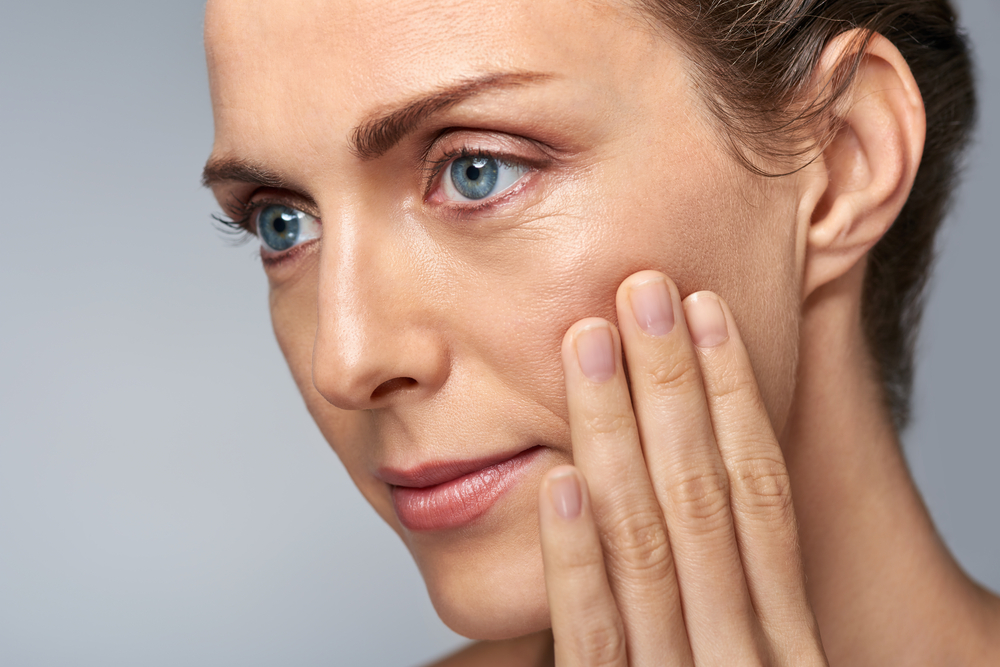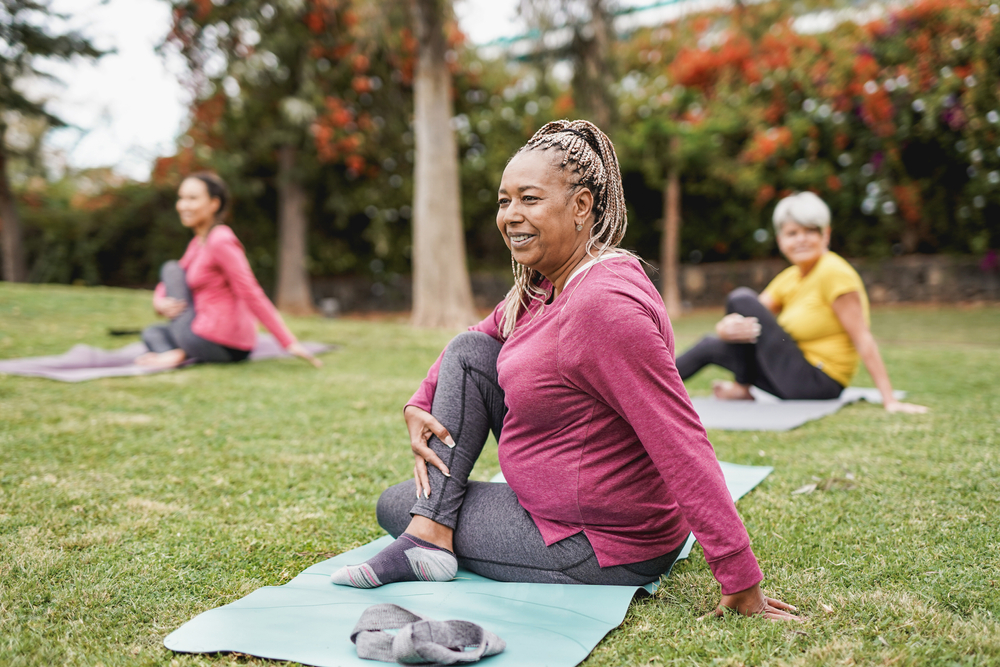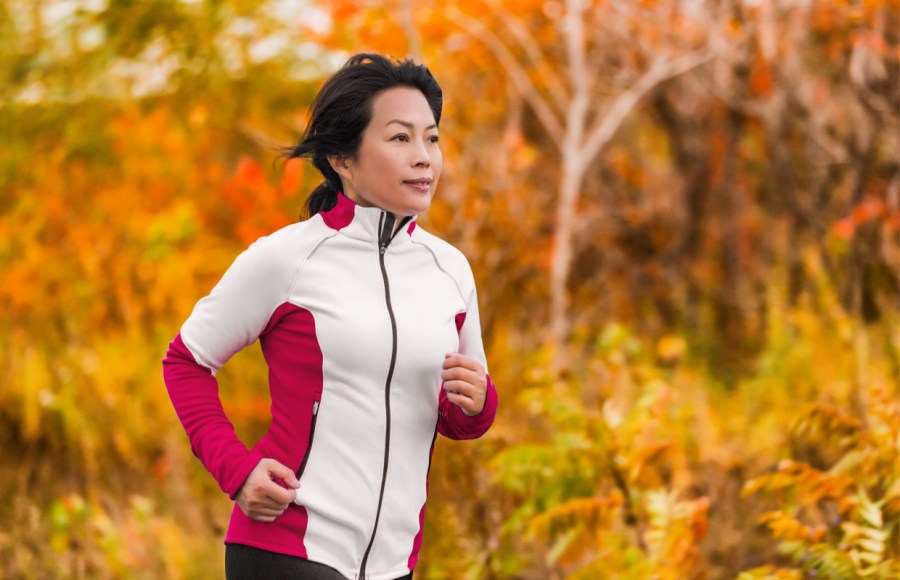Regular exercise won’t just keep you toned and energised, the latest research shows it keeps your body young too. Discover the anti-ageing benefits of fitness as you get older, plus the best workouts and exercises to include in your regime…
There’s nothing more youthful than the glow you get after exercising. Research proves that staying active has anti-ageing benefits, too.
Related: Ageing and fitness: how to stay fit through the decades
8 anti-ageing benefits of fitness
1. Exercise age-proofs your cells
Exercise keeps you young from the inside out. A study at Saarland University in Germany found that exercise hinders the shortening of telomeres – the protective caps on the ends of all our chromosomes.
Telomeres are similar to the plastic tips on the end of shoelaces that stop them unravelling. As telomeres shorten, a cell becomes more susceptible to dying. The researchers also suggest a sedentary lifestyle can make you more susceptible to free-radical damage and inflammation at a cellular level.
2. Regular exercise protects your heart
Exercise has rich and multi-layered benefits for your heart, lowering body fat, blood pressure and risk of diabetes, as well as raising levels of heart-protective HDL cholesterol.
Related: How exercise could prevent and treat coronary heart disease
3. Exercise is de-stressing
Experts at the University of Missouri-Columbia in the US have found relatively high-intensity exercise is one of the best tools we have for reducing stress and anxiety. And all the better if you exercise outdoors – a study at the University of Essex shows that a five-minute burst of outdoor activity lifts mood.

4. Exercising helps age-erase your skin
When you exercise, you increase your circulation and get the blood flowing around your body so that it brings nutrients and oxygen to your skin – and a wonderful rosy glow.
Related: Premature ageing causes: 7 reasons you look older
5. Keeping fit boosts your brain cells
Countless studies show that regular exercise, such as running, can help create new brain cells. It can also significantly lower your risk of age-related brain decline and dementia.
6. Exercise cuts your cancer risk
Regular exercise can slash your risk of breast cancer, confirms a study of 74,000 women at the Fred Hutchinson Cancer Research Center in Seattle. And a US review of 52 studies has found it can cut risk of colon cancer by up to 24 per cent.
7. Staying active keeps your bones young
Many factors contribute to bone density, but physical activity is one of the most powerful ways of maintaining a healthy bone mass. The best bone-stimulating activity is weight-bearing exercise, such as running, walking and weight training.
Related: Osteoporosis prevention: workout for bone health
8. Regular exercise balances your hormones
As well as helping minimise PMS symptoms, a study shows that if you remain active up to and during the menopause, you can ease common symptoms including anxiety, depression and stress.
Is it too late for me to start exercising?
No – it’s never too late to start reaping the benefits of exercise. Regular exercising is such a powerful anti-ageing weapon you’ll still get the benefits if you start later. A study by Boston’s Brigham and Women’s Hospital in the US showed that even taking up exercise after the age of 70, along with eating healthily and not smoking, can boost your life expectancy by 50 per cent.
Can over-exercising be harmful?
Yes – in fact, over-exercising can be just as ageing as doing no activity. It puts you at risk of injury, can reduce your body fat levels enough to risk your fertility and bone health, stress your joints and cause cellular inflammation. And if you’re a fan of working out in the great outdoors, you’re likely to expose yourself to greater levels of sun damage, so wear UV protection.
Related: Cortisol levels & fitness: how to exercise for stress relief

Best anti-ageing workouts and exercises
To reap the anti-ageing benefits of fitness, your workout programme should include the following exercises and activities:
Cardiovascular activity
Aerobic exercise, such as dancing and swimming, boosts your circulation, heart and lungs. Make sure some of your sessions are weight-bearing, such as walking and running, to give your bones a workout. If you have joint problems brisk walking will suffice.
Resistance training
Weight training helps build muscle and fire your metabolism. It also strengthens your bones and can improve your flexibility and coordination.
Stretching
Flexibility exercise such as Pilates and yoga build strength in your joints and muscles, and are proven to douse stress.
Mental training
Any physical activity that gets you interacting with others, taxes your brain with complicated rules or tests your memory is fantastic for keeping your grey matter healthy and young. Think dancing, orienteering or netball.








